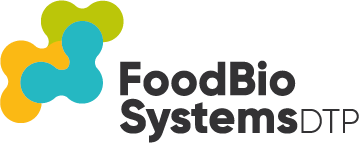Meet doctoral researchers at Queen’s University Belfast
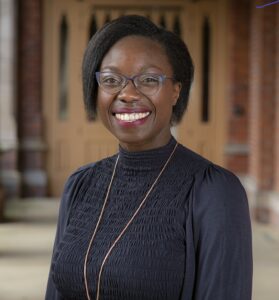
Barbara Bray MBE FIFST RNutr
2021-25 cohort
Project title: Design and evaluation of a nutritionally adequate diet for healthy ageing in older UK adults: The Healthy Ageing DIet (HADI) Study
Academic partner: University of Reading
Professional Internship Placement: Social Science Research Group, Food Chain Team, Defra
What is your project about and why is it important to the UK food system?
The healthspan of the UK population lags behind the lifespan. Diet quality has been shown to be a modifiable risk factor in chronic disease and can affect quality of life. My study will investigate the adequacy of food consumption data for older UK adults [65+ years] by applying a linear programme model (known as diet optimisation) to determine which foods and nutrients should be increased in the diet for optimal nutritional and health status.
On completion of the diet optimisation, I will hold co-design workshops with stakeholders to define acceptable foods that would be feasible for targeted nutrient fortification and product innovation for older adults. The stakeholder network for HADI will involve key players in UK agri-food industry, food retail, product development, academia, clinicians, and older people themselves. I will produce a Healthy Ageing Diet (HADI) scoring system and evaluate adherence to HADI in relation to nutritional and health outcomes in nationally representative UK ageing cohorts.
By using taking food systems approach I can ensure that I look at all the areas that impact on these workstreams from across the food system. This is different from the more traditional perspectives on food production and consumption because I will not only focus on the human nutrition component but look at food practices and take into consideration where people get their food from, how it is made and how it is eaten.
How have you found your PhD so far?
I returned to full-time study after working for over 20 years in the chilled foods industry and I have found the transition to academic life is full of twists and turns. It’s been great to meet a wide range of scientists and develop new working relationships. I have found my colleagues to be really supportive when the business of delivering a PhD as a mature student seems overwhelming.

Rachel Moore
2022-26 cohort
Project title: Fruit and vegetables within the current food production system and healthy
Academic partner: University of Reading
Why is your project important to or how is it relevant to the UK food system?
The food system is highly interconnected and my project covers different components of this approach- primarily health and society elements. The project aims to explore the use of targeted biomarkers to help improve dietary assessment of fruit and vegetables. In a food systems context, this work will help understand how consumer choice, nutrition and health are interconnected to help drive change and improve understanding.
What have you enjoyed most about DTP training so far?
Multiple things spring to my mind for this question, however, the Summer School held at Cranfield University last year is top of the list. The training workshops and activities during that week were very immersive and helped build my transferable and subject specific skills. It was also a good opportunity to network with other PhD students from different universities across the UK and feel as part of a cohort.
What challenges have you met so far in your project? And how did you overcome them?
Part of my project involves using secondary data analysis, therefore I have to ensure data compatibility and integration between data sets. This process is not always easy and as I hadn’t combined multiple data sets before starting my project, I had to learn how to handle data correctly. To achieve this, I took a module in medical statistics in my first year, which has helped with data management skills.
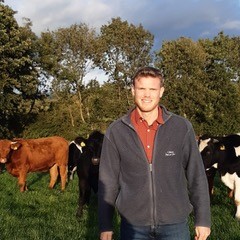
Joshua Thompson
2020-24 cohort
Project title: Willow (Salix spp): The potential of a tannin-rich tree fodder to reduce ammonia emissions and improve productivity of dairy cattle
Academic partner: University of Reading. I have a CASE studentship and the project is also supported by a non-academic partner.
What is your project about and why is it important to the UK food system?
My project relates to the decarbonisation of the ruminant agriculture sector through reducing methane and ammonia emissions, increasing protein efficiency and production while creating potential for increasing carbon sequestration with livestock pastoral systems.
What have you enjoyed most about DTP training so far?
I have enjoyed collaborating with other students from different universities. It is also good to have a link with relevant food industries and businesses creating contacts for commercialisation and application of project.
Have you met any challenges in your project?
I hadn’t carried out much lab work before my PhD – I did feel a little out of my depth but colleagues were there to train me and guide me through the steps. I learned to try and avoid letting circumstance overwhelm me – it helps to take one step at a time and believe you can do it.
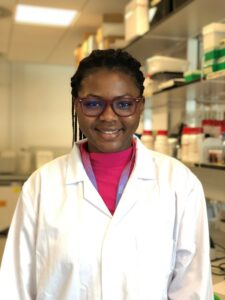
Whitney Vale-Hagan
2022-26 cohort
Project title: Multi-functional food fibres as bio-based binders selectively modified using green technologies and enzymes.
Academic partner: University of Reading. I have a CASE studentship supported by CelluComp Limited.
What is your project about and why is it important to the UK food system?
My project focuses on finding use for fibre rich agri-food by-products produced in UK and Ireland and using eco-friendly techniques to enhance the physicochemical and rheological properties of the fibres. The project seeks to help find use for by-products which may end up on landfill sites and minimize the impact of food waste as well as conventional chemical processing. Also, the project is focused on finding an alternative to methylcellulose as a food binder as methylcellulose have received lots of backlashes lately.
What have you enjoyed most about DTP training so far?
I enjoyed the summer school experience of learning new things and coming together to meet other cohort members. Also, I enjoy the monthly webinars, I get to learn about the exciting projects my colleagues are working on and how everyone is playing an important role to help the agri-food system.
What are you looking forward to doing next in your project?
I am looking forward to understanding how the various eco-friendly techniques (ultrasonication, high pressure, microwave processing etc) affect the properties of fibres and how that could be beneficial to the food industry. I am also looking forward to my placement with my industrial partner and learning new skills from this placement.
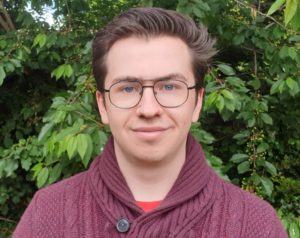
Christy Wray
2020-24 cohort
Project title: Can many biomarkers make light work of liver fluke parasite diagnostics?
Academic partner: University of Reading. I have a CASE studentship and the project is also supported by a non-academic partner.
What is your project about and why is it important to the UK food system?
Current control methods of liver fluke, a pervasive parasitic worm common in UK/Irish sheep and cattle farms, are heavily reliant on blanket chemical treatments at high-risk periods due to poor diagnostic methods. This is causing selective pressure for drug resistance, putting future livestock at great risk. Novel diagnostics can support targeted treatment, slowing the spread of drug-resistant parasites and giving more time for the development of novel treatment and control strategies.
What have you enjoyed most about DTP training so far and have you met any challenges in your project?
There is a great support for training all DTP students in both specialist areas for the given project and more general training that is useful for all scientists – I’m confident I’ll come out of this DTP with experience in a wide range of skills essential to any scientific discipline, and in industry too.
Getting back into a wet lab after years away was quite an intimidating experience but the DTP, my supervisory team and my lab have been very supportive in getting me the help I needed – I’m now confident with all the wet lab techniques I’ll need for my project.
What are you looking forward to doing next in your project?
Getting into the nitty gritty data analysis! PhDs can be a bit slow to get started but data is starting to flow and I’m excited to see what kind of results we’ll find.
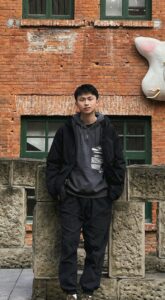
Benchu Xue
2022-26 cohort
Project title: Food for Feed: Valorisation of agro industry by- products in animal feed
Academic partner: University of Reading. I have a CASE studentship supported by Agri-food and Biosciences Institute (AFBI)
What is your project about and why is it important to the UK food system?
As the food processing industry produce considerable amounts of by-products annually around the world, it is globally acknowledged that addressing the environmental impact of their disposal is imperative. Simultaneously, there is a pressing challenge in the competition between food production for human consumption and animal feed. Transforming these by-products to ruminants feed not only mitigate the damage to environment in terms of waste disposal and ruminants gastrointestine, but relieve the issue of shortage of feed ingredients.
What have you enjoyed most about DTP training so far?
Training from DTP provide me a series of necessary skills that I need during my PhD period, such as the training for data analysis. For the part I enjoyed most, it is the DTP summer school, where we had communication with other PhD students from other university, as we always get inspired based on the perspective of researcher from various research field.
What are you looking forward to doing next in your project?
The next step of my project is the animal trial, which is the most exciting part for me. I could work in the farm, where I could validate the results from in vitro experiment and see if it works in real farm. What’s more, I wish to acquire the knowledge and ability related to farm management in this period, so as to do preparation for my career.
